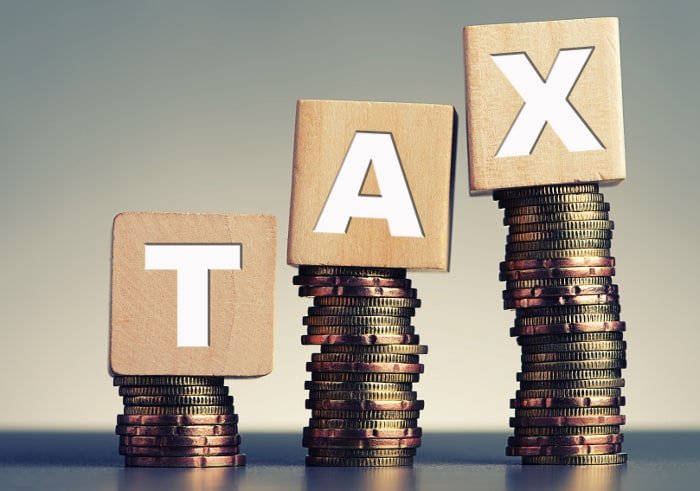Understanding the Taxation and other related issues related to Bitcoins (Cryptocurrencies)
Crypto Currencies are decentralized virtual or digital currencies which are neither issued by any Central Bank nor are backed up by any Government. These currencies are quite popular because they provide secure and anonymous way of remittance of money and entering into a transaction. These currencies are acceptable as a mode of payment by some entities. The Honourable Finance Minister in the Budget speech of 2018 mentioned that Cryptocurrency is not legal tender in India but the government will explore its underlying technology, called blockchain, to usher in the digital economy, finance minister Arun Jaitley said on Thursday while presenting Union Budget 2018. The government will take measures to eliminate use of crypto-assets in financing illegitimate activities or as part of the payment system, the finance minister said. The focus, however, would be on the distributed ledger system or blockchain technology that allows organization to record and authenticate transactions without the need of intermediaries.
Cryptocurrency is digital money. It is considered to be more secure that the real money. Cryptocurrency uses something called cryptography to secure its transactions. Cryptography, to put it in simple words is a method of converting comprehensible data into complicated codes which are tough to crack. Cryptocurrencies are classified as a subset of digital currencies, alternative currencies and virtual currencies.
Bitcoin was the first ever cryptocurrency created in the year 2009. Subsequently, there has been a rapid increase in the number of cryptocurrencies that have been created some of which are Litecoin, Ethereum, Zcash, Dash, Ripple etc.
Bitcoins, in India, have slowly started gaining popularity, given the efforts of the government to move towards a cashless economy. However, one should know that bitcoins, as of today, are not centrally administered or regulated by any specific body like the RBI which administers physical currency in India. In fact, peer-to-peer transactions with bitcoins are managed using something known as the blockchain technology which serves as a public ledger for all transactions.
Source of generation of Bitcoins and its taxability
Considering that there is no specific mention in the Income-tax regarding taxability of cryptocurrencies, one needs to understand the possible views which the income tax authorities might take in order to get the income generated from such transactions within the gamut of taxation in India.
Bitcoins taxability may be looked into from the following perspective:-
1. Mining
Mining is an activity where an individual (called the “miner”) uses his computer ability to crack computationally difficult puzzles. The process of cracking such puzzles which are integral to the blockchain technology, help in maintaining them. As a reward for this, the miner gets new bitcoins which is nothing but creation of a bitcoin or mining.
Bitcoins created by mining may be considered as self-generated capital assets. Subsequent sale of such bitcoins would, in the ordinary course, may give rise to capital gains. However, one may note that the cost of acquisition of a bitcoin cannot be determined as it is a self-generated asset. Further, it also not fall under the provisions of Section 55 of the Income-tax Act, 1961 which specifically defines the cost of acquisition of certain self-generated assets.
Therefore, the capital gains computation mechanism fails following the Supreme Court decision in the case of B.C. Srinivasa Shetty. Hence, no capital gains tax would arise on mining of bitcoins.
This position would hold till such time the government thinks of coming up with an amendment to Section 55 of the Act and considering that the tax authorities consider the income from Bitcoin as capital gain.
However, it is probable and there are high possibilities that the income-tax authorities may consider income from Bitcoins as ‘income from other sources’. If the same is considered under ‘income from other sources’, it will be taxed at the rate of 30% (if it exceeds 10 lacs) instead of 20% in case of Long term capital gains and the benefit of indexation would not be available.
2. Bitcoins held as stock-in-trade
Bitcoins held as stock-in-trade and which are transferred in exchange of acceptable negotiable instrument in India would give rise to income from business and accordingly, the profits arising out of such business would be subject to tax as per the individual slab rates.
3. Bitcoins being received as consideration on sale of goods and services
In case of receiving bitcoin against sale of goods/ services, the bitcoins so received should be treated at par with receiving of money. Such sale of goods/ services should be taxed under income from business/ profession.
4. Bitcoins held as an investment being transferred in exchange for acceptable Negotiable Instrument
This might have two views. One where Bitcoins are considered as capital assets then in that case the real currency realised over and above the cost of bitcoin may be treated as capital gain long term capital gain/ short term capital gain based on the period of holding. However, if the income-tax authority do not consider bitcoin as capital asset, then the provision of capital gain may not be applicable and the same may be taxed under “income from other sources”.
While this article covers the taxability of Bitcoins, the tax treatment on transacting with other similar cryptocurrencies would also be similar to that in the case of Bitcoins considering that they operate in similar way.

